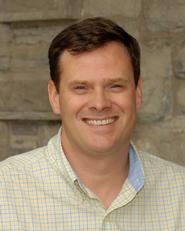
With the 2012 elections less than two weeks away, Think Tank held a session on Oct. 26 focusing on the timely topic of the presidential election. Phil Klinkner, the James S. Sherman Professor of Government, was invited to lead a discussion with an audience of students, staff and visiting parents.
The discussion began with Klinkner outlining the most important long-term factors influencing the presidential election. This included demographic shifts in the country and in party identification, the increased polarization in the electorate which has led to campaigns focusing on mobilization of voters rather than persuasion, and the increase of funding being poured into candidates and campaigns as well as independent expenditure committees of PACs.
For the long-term factors, Klinkner talked about how neither side has really picked up a clear advantage as both sides have found ways to adjust to the changing game. When it comes to electoral college math, both sides are facing long term liabilities, but are maintaining a competitive presence.
More relevant to this election in Klinkner’s opinion are the short-term factors, specifically the economy. According to Klinkner, the economy is the most important issue on voters’ minds; however, it is stuck in neutral for having an effect on the election. If it were recovering at a slightly faster rate, President Obama would likely have the election in the bag. However, if indicators suggested the economy were recovering at a slower rate or even declining, there would be no question that President Obama would be moving out of the White House in January.
Voters are most attuned to the ways in which the state of the economy has affected them in the approximate half-year leading up to an election, and according to Klinkner, neither side has a clear advantage from the public’s perception.
After discussing the influencing factors, Klinkner also suggested that sometimes, the most important reason someone votes a particular way is their party identification. As he stated, based on belonging to one party or another, many Americans made up their mind about who to vote for months, years or even decades ago.
Pressed to make some electoral predictions in the question and answer session following his talk, Klinkner gave Romney a slight edge for his rising poll numbers but also quickly qualified that President Obama is maintaining key advantages in some of the important swing states. Ultimately, Klinkner told the audience, this election is going to be close.
